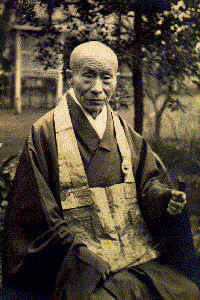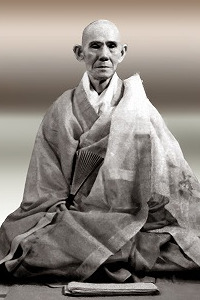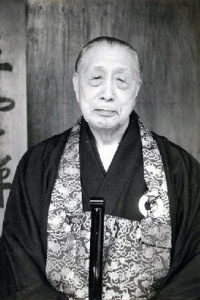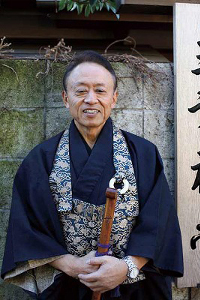Sanb˘-Zen
Sanb˘-Zen is a Zen-Buddhist religious foundation (shűky˘-HoJin) started by Yasutani Roshi Haku'un on 8 January 1954, under the name of Sanb˘ Kyodan.
"Sanb˘", literally "three treasures", signifies the three basic principles of Buddhism: Buddha, Dharma and Sangha.
The basic character of the organization is that of the Soto Zen line. But, following the tradition stemming from HARADA Sogaku Roshi, the Sanb˘-Zen integrated the Rinzai method of koan study in order to bring its students effectively to the realization of their true self.
Lineage: Harada, Yasutani, Yamada
The San'un Zendo, the central dojo of the Sanb˘-Zen, was built in 1970. San'un means "three clouds", which represent the three Zen masters of the same lineage:
 |
 |
 |
HARADA Dai'un |
YASUTANI Haku'un |
YAMADA ko'un |
 |
||
YAMADA Ry˘un Roshi |
Genesis of the Sanb˘-Kyodan
- The first abbot, Yasutani Roshi, was born on 5th January 1885 in the city of Shimizu, Shizuoka Prefecture, Japan. He was HARADA Sogaku Roshi's disciple (1871-1961), and eventually became one of his Dharma successors.
- The second abbot, YAMADA Koun Roshi, was born in the city of Nihonmatsu, Fukushima Prefecture, Japan, on 18 March 1907. He studied with HARADA Sogaku Roshi. In 1970 he was appointed president of the Kyodan.
- The third abbot, KUBOTA Ji'un Roshi, was born in Tokyo in 1932, and became Yasutani Roshi's student in 1949, and later sought YAMADA Koun Roshi's guidance. He was appointed Dharma successor to YAMADA Koun Roshi in 1985.
- The fourth abbot, YAMADA Ry˘un Roshi was born in 1949 in Manchuria and became Yasutani Roshi's disciple and then YAMADA Koun Roshi's. He took over the office of abbot of the Sanb˘-Zen in October 2004.
